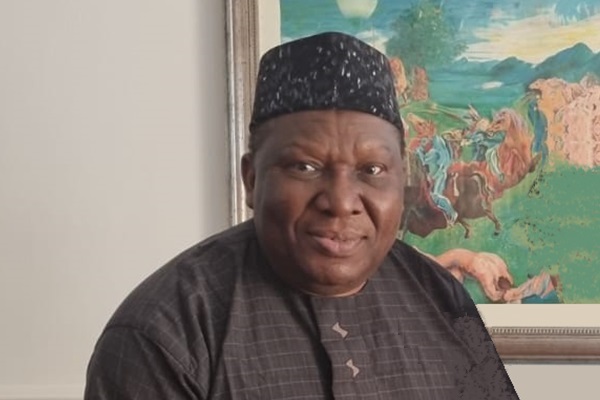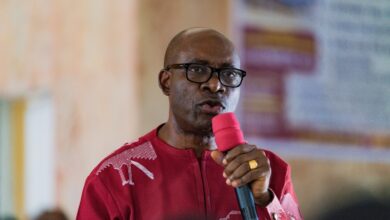About Bystander Effect, Herd Mentality and Passive Spectatorship

To avoid getting into trouble, the conventional wisdom for many is not to get involved – mind your business. It is also a convenient excuse for pro-establishment or politically correct individuals who dread rocking the boat.
Persons with these tendencies abound in all strata of society, corporate establishments, social groups, religious establishments, in politics and government. They shy away from responsibility but might be the first to criticise those who speak out or make efforts.
In many cases, this group of persons would rather stand by for others to pull their chestnuts out of the fire, while they sit comfortably and enjoy.

Researchers in psychology have continued to interrogate Bystander Effect or Bystander Apathy, a phenomenon where “individuals are less likely to help a victim when others are present.” This is mainly because “the greater the number of bystanders, the less likely any one of them is to intervene in an emergency or assist someone in distress… because individuals often assume that someone else will take action, leading to a diffusion of responsibility.”
Similarly, Herd Mentality, the tendency for people’s behaviour or beliefs to conform to those of the group they belong to, is a typical research topic. The concept has been studied and analysed from different perspectives, including biology, psychology and sociology and shown to have profound impacts on human behaviour.
On the other hand, passive spectators make up the numbers, but their passivity also has implications, especially on governance policies.
The passive spectator and bystander phenomena are not new. However, the action/s or inaction/s they spew continue to impact human behaviour and decision-making in societies and nations, particularly with the advent of digital technology, and the attendant implications on human progress and development.
Many of the images shared on social media today, including from life-threatening incidents, are generated by people who are part of the crowd and, in some cases, instead of assisting victims, are busy snapping shots or video recording the incidents.
In this Special Season, dear brothers and sisters, I wanted us to reflect on these concepts and how they can be transformed into positive energy for human development.
Incidents of herd mentality, bystander effect and passive spectator syndrome are recorded in the Holy Book.
Take the example of the Good Samaritan in Luke 10:25-37. Many passers-by, including a Priest and a Levite, saw the traveller, attacked by armed robbers on his way from Jerusalem to Jericho. None of them stopped to help the victim, except the Good Samaritan. The others considered their interests or missions more important or did not want to get into the trouble of taking care of a man at the point of death.
Also, *Acts 8:1* tells us that Saul, before his conversion, was present and even approved the stoning of Stephen to death, making the latter the first martyr.
In the same vein, in the parable of the adulterous woman in *John 8:1-11,* the crowd was ready to stone her until Jesus asked who among them had not sinned to cast the first stone.
And what about the crucifixion of Jesus Christ? Every group in the three concepts of herd mentality, bystanders, passive spectators and active participants, was represented in the spectacle.
The then-Roman Governor of Judea, Pontius Pilate, was rather ambivalent. He had the authority to free Jesus, but chose to play to the gallery.
The same crowd, which had hailed Jesus as a King a few days earlier, called for his crucifixion.
Also, while some women wept and lamented the treatment meted out to Jesus, some Roman soldiers tried to outdo each other in tormenting Him.
Of the two criminals crucified with Jesus, one taunted Him to save Himself, if He was truly Christ, the Saviour as He claimed, while the other pleaded with Jesus to remember him in His Kingdom (Luke 23:39-43).
There were some at the crucifixion scene who could not be bothered, and those who did not bother to attend. Even Jesus’ disciples abandoned Him.
The concepts of bystander, herd mentality and passive spectator syndrome can also be extrapolated to modern politics, to explore their implications on governance systems and possible remedies.
Today, many citizens, top-flight politicians and celebrities follow the Joneses to support any government in power. Others erroneously believe that politics or government business is not their business. Still, some citizens are intimidated into apathy or passivity.
Some describe politics as dirty, whereas it is the practitioners/politicians who play dirty.
The tragic irony is that it is because of or despite these negative tendencies that politicians and the political class thrive on to enjoy their booty unchallenged.
The citizens have the power, but are not using it, and the politicians and political elite know this.
Charles André Joseph Marie de Gaulle (1890-1970), the French general and Statesman who led the Free French Forces against Nazi Germany in World War II is a reference point in the advocacy for citizen participation in politics, an antidote to bystander effect, herd mentality and passive spectatorship.
He chaired the Provisional Government of the French Republic (1944-1946) to restore democracy in France, and in 1958, amid the Algiers putsch, he came out of retirement when he was appointed Prime Minister by President René Coty to rewrite the French Constitution, founding the Fifth Republic after approval by referendum.
Charles de Gaulle was elected President of France in 1958, a position he held until his resignation in 1969. Under the Socratic Method, which he popularised, the French Statesman affirmed: “Politics is too serious a matter to be left to the politicians.”
This quote acknowledges the “collective responsibility each individual holds in shaping the political landscape. It calls for an active participation in political decision-making processes, urging citizens to involve themselves…”
Like de Gaulle, Albert Einstein (1879-1955), a Jewish, German-born theoretical physicist and 1921 Nobel Laureate, best known for developing the theory of relativity, is also remembered for another famous quote against passivity.
According to Einstein, “The world is a dangerous place, not because of those who do evil, but because of those who look on and do nothing.”
Responsible citizens must eschew the bystander effect, herd mentality and passive spectatorship in secular and non-secular ecosystems.
Merely complaining is not a solution. It is better to stand for something than to fall for everything.
Since the decisions made/taken by politicians and the leadership in every system affect active and passive spectators, citizens must endeavour to discharge their civic responsibilities by taking an active part, asking critical questions and demanding accountability, to shape policies and contribute to the good of society, nation and the World.
I wish everyone a Happy Easter and Wonderful Holidays!
Paul Ejime is a Media/Communications Specialist and Global Affairs Analyst.
Post Views: 53





